A few years ago, I met with Rodolfo Chung, CEO of rapidly rising Zé Delivery in Brazil. This is a beverage delivery service that was launched by AB InBev right before Covid – and took off like a rocket during the lockdown. It had pretty spectacular success very quickly.
Basically, Zé Delivery is a mobile app that lets you order any of 500 SKUs for beer, wine, and spirits on your phone and get delivery in 15-25 minutes. A simple and great customer value proposition. Especially in a country that likes beer.
Zé Delivery orders grew from 1.5 million in 2019 to 62 million in 2021. Post Covid, Zé Delivery’s growth slowed but, according to Rodolfo, they have retained their users and transaction volume.
It is without question the biggest success within beer giant AB InBev’s push into digital and platforms. And AB InBev is now replicating the Zé business model across Latin America.
I suspect Zé Delivery will become a model for how a leading CPG companies (with large scale production and distribution) can build successful direct-to-consumer digital services. And there is a Harvard Business Review case being written about the company.
I toured the Zé Delivery operations in a couple Sao Paulo neighborhoods and it was pretty great. On demand delivery of ice cold beverages has interesting supply side requirements. But for this article, I want to talk about the demand side of the business.
But first, here are some photos from their operations in Sao Paulo.
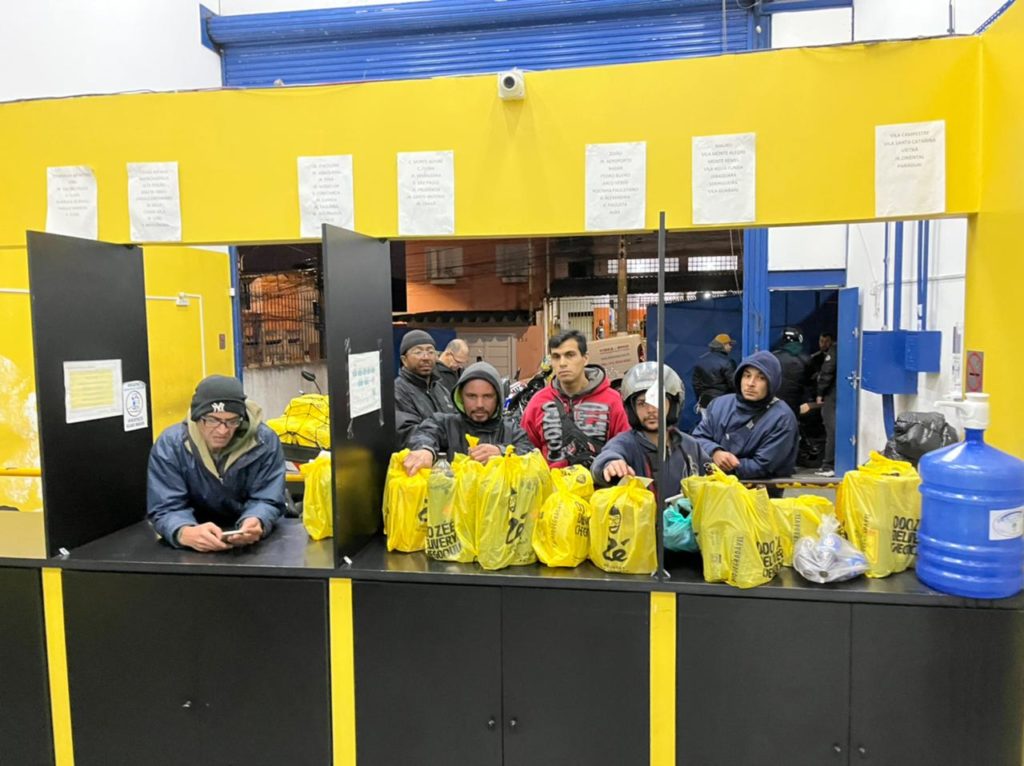
These are motorcycle riders picking up their orders for delivery in Jabaquara. It processes +4,000 orders per week. And the average order size was $10.
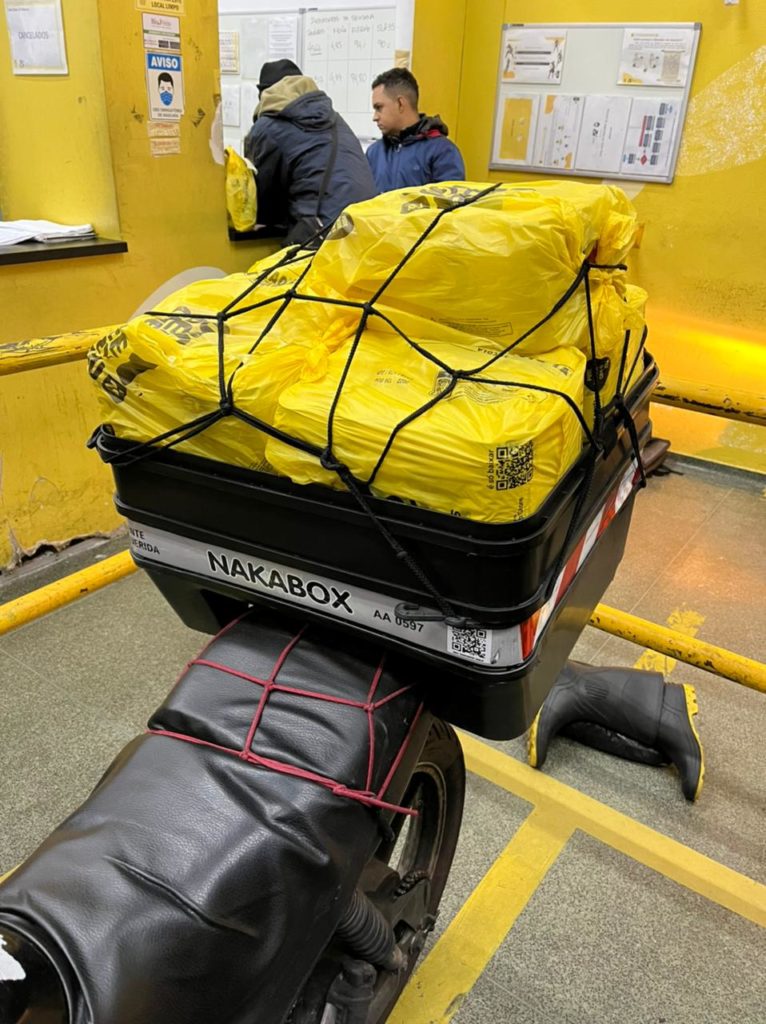
Here is one of the company’s 26 “dark kitchens” in Sao Paulo for distribution.
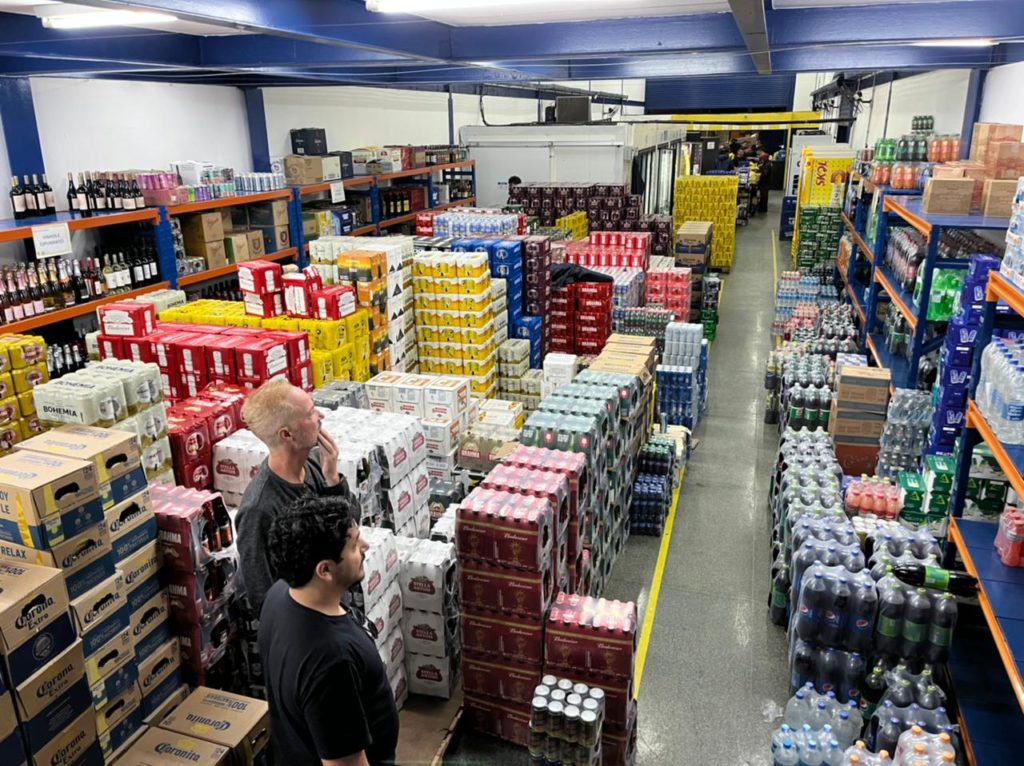
Here is the HQ, which definitely has a tech company feel for its +800 employees. And there is lots of yellow to match its logo.
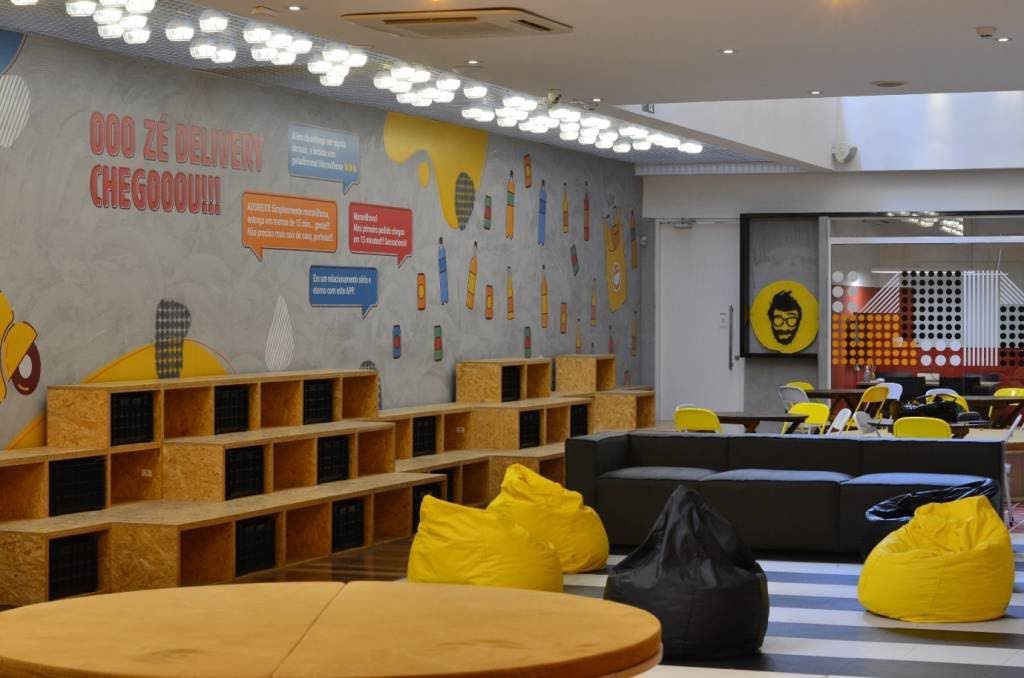
Their logo is a guy with a beard named Zé. You can see this in the below right. Zé isn’t an actual person (I asked). He represents the “everyman” of Brazil. Note that he really does jump off the smartphone screen.
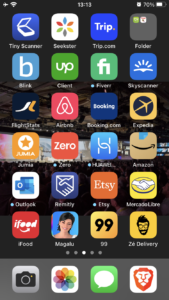
One of the questions Rudolfo and I discussed was Zé’s consumer value proposition.
Rudolfo said Zé Delivery offered consumers beer, wine and spirits that are cheap, cold and fast. That’s a good, simple pitch. You get a low price. You get it delivered fast (think 15 minutes). Which speaks to convenience (which usually induces demand). And it is guaranteed to be ice cold. The refrigerators in their facilities are kept really cold.
That’s a solid value proposition.
But it sounds like a delivery app for a supermarket or convenience store. And those stores can offer a bigger variety of products. However, Zé Delivery can offer a much larger selection of long tail alcohol types.
If you view the service this way, then my assessment would be Zé Delivery is:
- A popular service (cheap, fast and cold alcohol) with proven product market fit. The numbers are big and grew really fast.
- A serious barrier to entry against other digital natives, who cannot replicate their big physical infrastructure and the COGS they can offer because of AB InBev.
- They can be replicated by other large retailers (supermarket chains, convenience stores) who have significant distribution scale and purchasing power.
- But Zé Delivery is first mover and are rapidly capturing consumers and building in share of the consumer mind and switching costs.
My big question is:
How can Zé Delivery differentiate and strengthen itself on the demand-side over time?
Zé Delivery Goes From Personalization to “Wow” Experiences
This is my main area of interest. My argument is that you need to choose your marathon and build your moat. Hence, my books are called Moats and Marathons.
The moat for Zé Delivery is pretty clear.
- CA1 – Share of the consumer mind.
- CA2 – Switching costs.
- CA12 – Purchasing power
- CA13 – Economies of scale in geographic density
That’s a great combination of digital and physical.
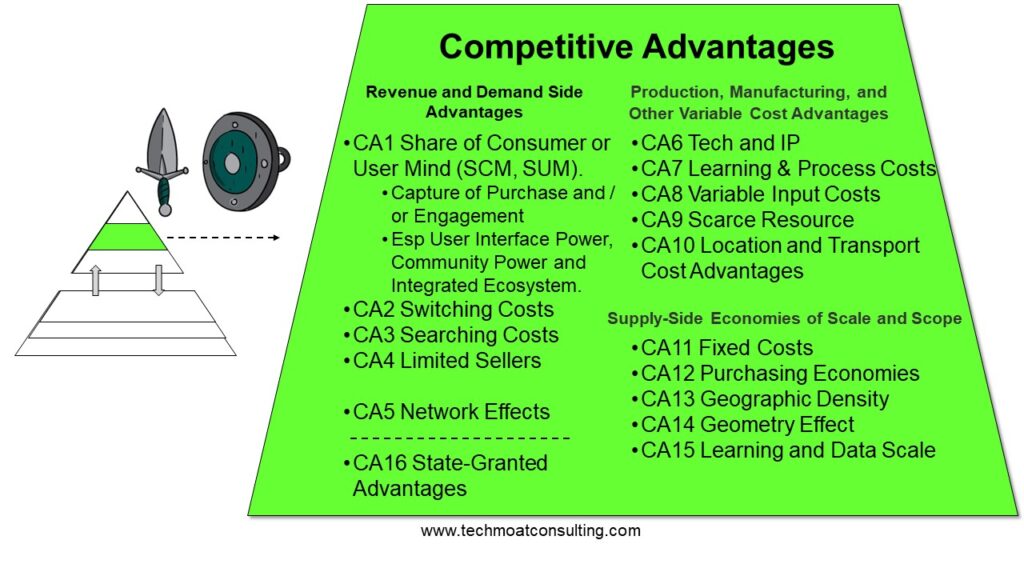
The marathon for Zé Delivery is Rate of Learning. Intelligence and Adaptation. They need to continually improve the consumer experience using data. They need to create a feedback look between learning and improving their service.
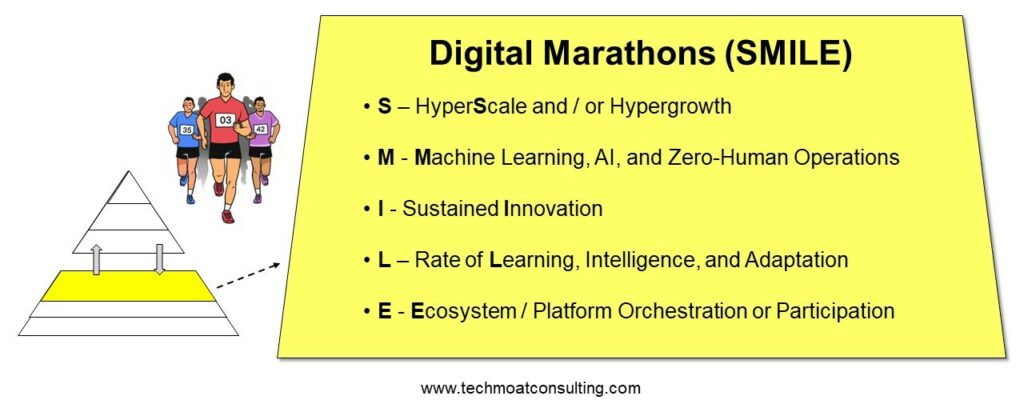
The Zé Delivery app is pretty basic right now. They are an ecommerce retailer with lots of alcohol types. They are doing some personalization. And there are some offered bundles. But they are not doing much real time bundling or personalization. So the consumer offering looks like a online retailer in its early iterations.
But the company is not talking about itself like a supermarket that sells products. Or like a digital version of one the many beverage stores you see around Brazil. Such as Royal Bebidas below.
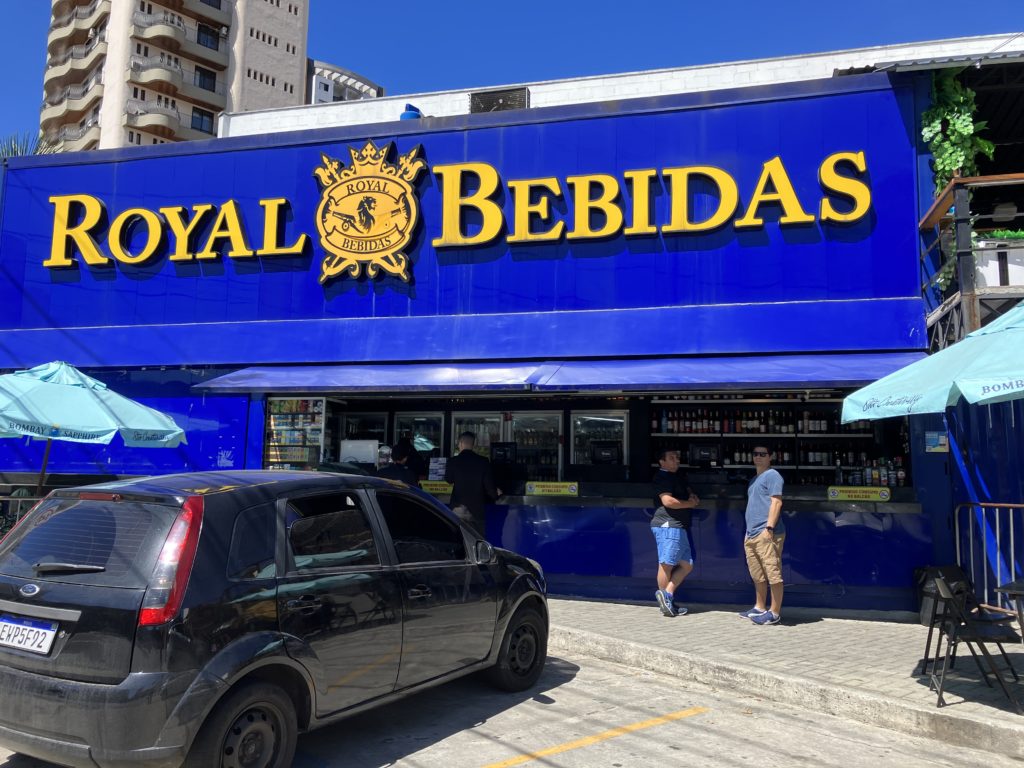
A typical alcohol retailer in Brazil.
Zé Delivery, like parent AB InBev, talks about events and occasions where people get together and drink. Such as in bars and restaurants. And in homes and at parties and events. They don’t talk about products as much as they talk about events and occasions.
Similarly, Zé Delivery is not just about “on demand delivery” for alcoholic beverages. It’s not just going for convenience. It is attempting to digitize and enrich events and occasions. On demand and convenience is just the first step.
So Zé Delivery has a really interesting marathon.
How can you use data and digital tools to increasingly enrich celebrations and other special times people spend together?
The simplest version of this is to become the one-stop “on demand” service for everything you need for when your friends get together on a Saturday night. Or when a family gets together on a Sunday for lunch after church. And, sure enough, Zé Delivery now offers meat and BBQ supplies (super popular in Brazil) along with their beverages. They are expanding their product offerings.
My recommendation to Rudolfo was to look at this as a never-ending process of experimentation and innovation to improve the consumer experience. They should go beyond just personalization and tailored product bundles.
That is part of the below strategy.
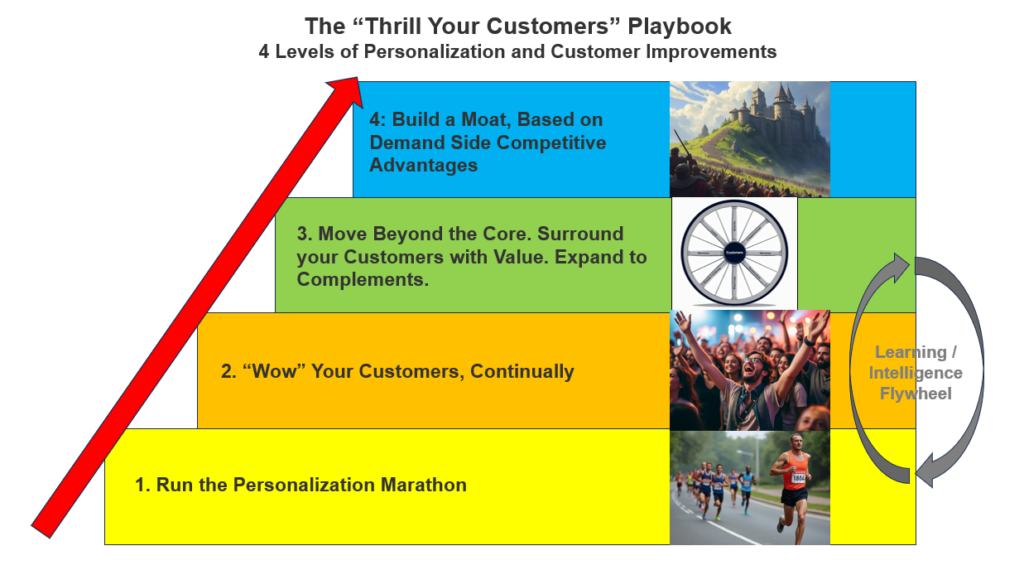
It’s about continually thrilling and wowing your customers at their events and occasions. And I pointed to South Korean Coupang and Chinese Xiaomi as examples of this.
- Xiaomi sells consumer electronics. But these are one time sales. Retention and repeat purchases are a challenge because people don’t buy phones that often. So Xiaomi talks about the need to continually create products that “thrill” their customers. That keep people coming into their stores. So they keep launching new products like smart chopsticks and smart air purifiers. And customers always stop in to their stores to see what’s new this month.
- Coupang says its goal is to create “wow” experiences for their customers, every day. That is their operating standard. They try to surprise and wow their customers literally every day. They call these wow experiences.
That is the right type of marathon for Zé Delivery. They need to continually improve the customer experience. And the target is not just an individual’s happiness. But the interactions between people that happen at events and occasions.
This means about adopting a process and culture of never-ending experimentation and innovation to improve the consumer experience. Which I have put under DOB2 (see below). This is table stakes for most digital businesses. But Zé Delivery needs to elevate this to its core digital marathon.

In Part 2, I’ll discuss why this same idea of “personalized to wow experiences” is critical for companies like Ant Group and Alibaba.
***
Ok. That’s enough theory for today. I hope that is helpful.
Cheers, jeff
And, for fun, here are some pictures from around Sao Paulo.
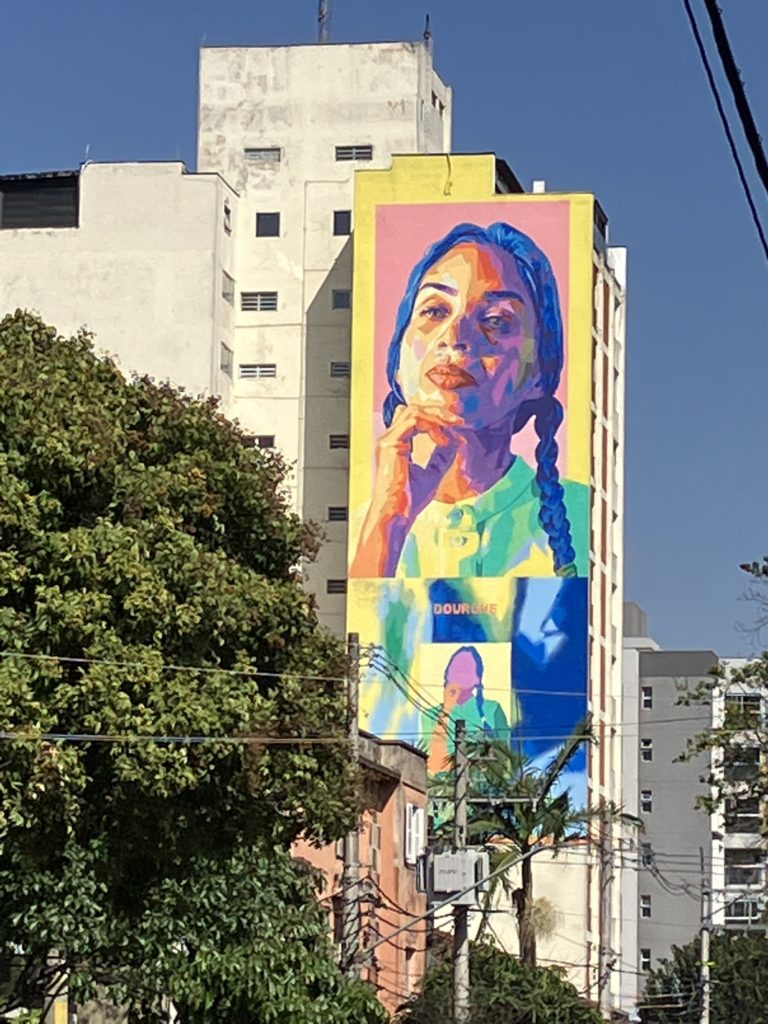

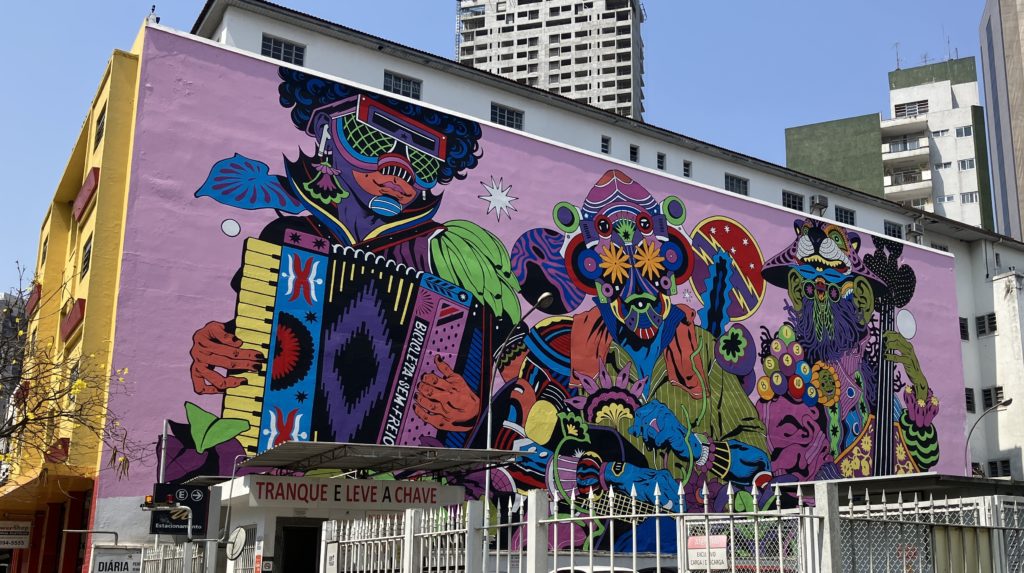
——–
Related articles:
- Why I Really Like Amazon’s Strategy, Despite the Crap Consumer Experience (US-Asia Tech Strategy – Daily Article)
- 3 Big Questions for GoTo (Gojek + Tokopedia) Going Forward (2 of 2)(Winning Tech Strategy – Daily Article)
- Why Netflix and Amazon Prime Don’t Have Long-Term Power. (2 of 2) (US-Asia Tech Strategy – Daily Article)
From the Concept Library, concepts for this article are:
- Digital Operating Basics 2: Personalization and Customer Improvements
- SMILE Marathon: Rate of Learning
From the Company Library, companies for this article are:
- Ze Delivery
- Ab InBev
——-
I am a consultant and keynote speaker on how to increase digital growth and strengthen digital AI moats.
I am the founder of TechMoat Consulting, a consulting firm specialized in how to increase digital growth and strengthen digital AI moats. Get in touch here.
I write about digital growth and digital AI strategy. With 3 best selling books and +2.9M followers on LinkedIn. You can read my writing at the free email below.
Or read my Moats and Marathons book series, a framework for building and measuring competitive advantages in digital businesses.
Note: This content (articles, podcasts, website info) is not investment advice. The information and opinions from me and any guests may be incorrect. The numbers and information may be wrong. The views expressed may no longer be relevant or accurate. Investing is risky. Do your own research.
